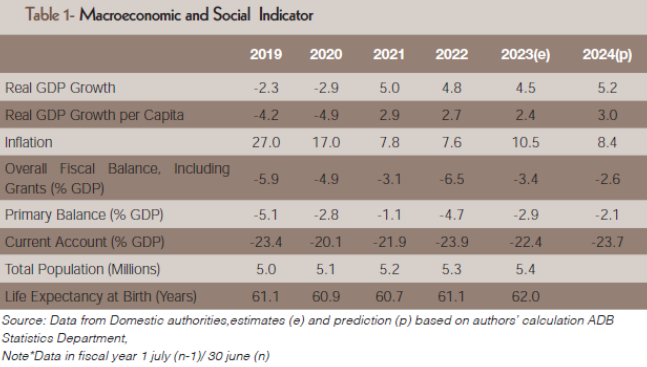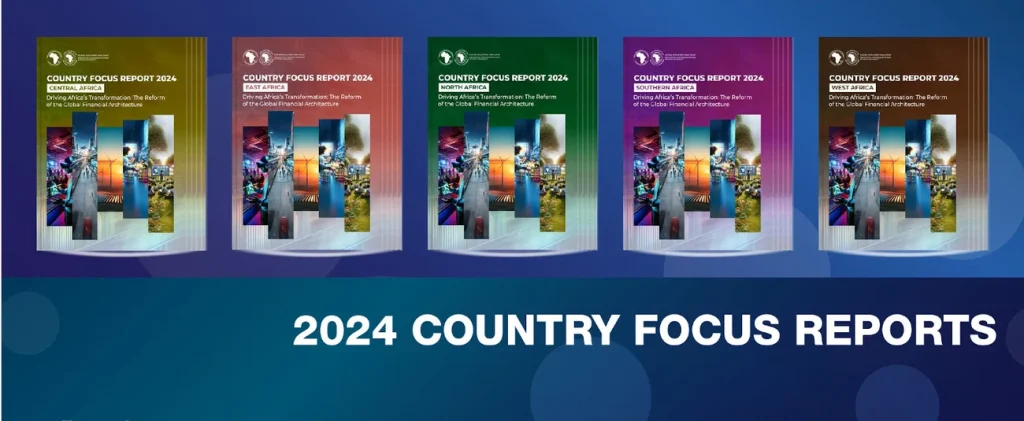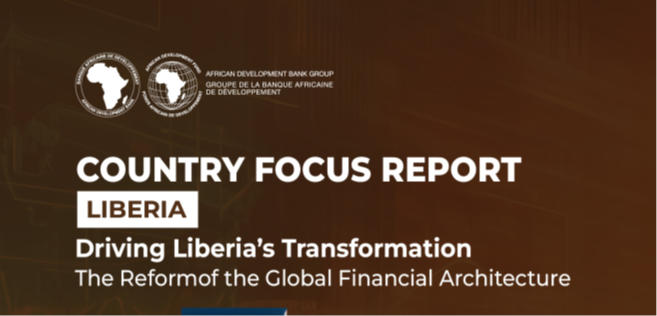The African Development Bank (AfDB) has released its comprehensive “Country Focus Report 2024 – Liberia: Driving Liberia’s Transformation – The Reform of the Global Financial Architecture.” This landmark report delves into the economic, social, and infrastructural landscape of Liberia, presenting key findings and recommendations that are poised to significantly influence the country’s trajectory. That is, provided the country can take the report seriously. The report, amid recent exposure to the daunting state of affairs of the country’s financial architecture, focuses on the need for reforming the financial architecture to benefit Liberia, outlining critical areas for development and policy adjustments necessary for sustainable growth.
Economic Overview
The AfDB report highlights that Liberia has shown resilience in the face of global economic challenges, with a projected GDP growth rate of 4.2% in 2024. However, the report also points out structural weaknesses that need to be addressed to sustain this growth. The dependency on primary commodities and the lack of diversification in the economy are identified as major impediments to economic stability. The report underscores the importance of implementing policies that encourage diversification, particularly in agriculture and manufacturing.

Financial Sector Development
One of the key findings in the report is the need for a robust financial sector to support economic growth. The AfDB emphasizes that the reform of the global financial architecture should be leveraged to create a more inclusive financial system in Liberia. The report recommends the expansion of financial services to rural areas, which are currently underserved. Improving access to credit for small and medium enterprises (SMEs) is also highlighted as a critical step towards boosting entrepreneurship and job creation.

Infrastructure and Connectivity
Infrastructure development is another crucial area highlighted in the report. Despite improvements, Liberia’s infrastructure remains inadequate, particularly in the transportation and energy sectors. The report calls for increased investments in road networks and energy infrastructure to facilitate trade and improve the overall business environment. Enhancing digital connectivity is also emphasized as a way to integrate Liberia more effectively into the global economy.
Human Capital and Education
The report points out that investing in human capital is essential for Liberia’s long-term development. With a young and growing population, the AfDB stresses the importance of improving access to quality education and healthcare. The report recommends reforms in the education sector to align with the needs of the labor market, thus preparing the youth for employment in emerging sectors.
Governance and Institutional Reform
Good governance and strong institutions are identified as pillars for sustainable development. The report advocates for reforms that enhance transparency, accountability, and the rule of law. Strengthening institutions to combat corruption and improve public service delivery is crucial for building investor confidence and attracting foreign direct investment (FDI).
Implications for Liberia
The findings and recommendations in the AfDB report have significant implications for Liberia. By addressing the structural weaknesses in the economy and investing in key sectors, Liberia can unlock its potential for growth and development. The focus on reforming the financial architecture to support inclusive growth can help reduce poverty and inequality in the country.
Strategic Recommendations
The AfDB provides a set of strategic recommendations to drive Liberia’s transformation. These include diversifying the economy, investing in human capital, improving infrastructure, and strengthening governance. The report also calls for increased collaboration between the public and private sectors to mobilize resources and implement reforms effectively.
The African Development Bank’s “Country Focus Report 2024 – Liberia” presents a comprehensive roadmap for the country’s transformation. By addressing the challenges and leveraging the opportunities identified in the report, Liberia can position itself on a path to sustainable and inclusive growth. The implementation of the report’s recommendations will require concerted efforts from all stakeholders, including the government, private sector, and development partners.
Future Outlook
Looking ahead, the AfDB report underscores the importance of continuous monitoring and evaluation of the implemented reforms. As Liberia embarks on this transformative journey, it will be crucial to adapt strategies to evolving circumstances and ensure that the benefits of growth are widely shared among the population. With the right policies and investments, Liberia can harness its potential and achieve its development aspirations.
For a pdf version of the report. See link below
https://vcda.afdb.org/…/country-focus-report-2024-liberia

Dr. Clarence R. Pearson, Sr. is a Liberian clergy and social scientist with strong interest in advancing global peace, human rights, a safe planet, and social equity. He holds a BA in Theology, and MA with distinction from the Kofi Annan Institute for Conflict Transformation, University of Liberia. He also graduated with honor from the Louisiana Baptist University and Seminary, Shreveport, Louisiana, USA with A PhD in Psychology and Counseling. Dr. Pearson is a social researcher, an educator, and an author. He has over 29 years of practical professional experience in post-conflict peace-building, recovery, and development with emphasis in both the public and private sector.

